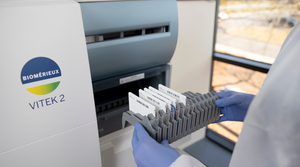Getinge Faces CE Mark Suspension for Life Support Systems
Several medtech companies have faced CE mark suspensions and rejections in recent years.
March 1, 2023

Getinge is facing a huge roadblock with its life support systems in Europe. The Getinge, Sweden-based company said last week it received notification from DEKRA, the notified body for certification services.
The suspension impacts Getinge’s HLS and PLS sets that are used for extracorporeal respiratory and/or cardiovascular support. The issue stems from potential breaches in sterile packaging of the HLS and PLS.
The company has since reported progress to relevant authorities on a number of initiatives, such as package design improvements and advanced testing of the packaging to ensure that the products are protected by a sterile barrier according to the applicable standards and requirements.
In a release, Getinge said, “The company is in dialogue with authorities and working urgently to minimize the impact on patients. The extensive work is continuing to secure compliance with essential requirements. All affected customers will receive communication from Getinge.”
Getinge isn’t the only company that has had its CE mark suspended. In 2021, Nuvasive’s MAGnetic Expansion Control (MAGEC) system faced CE mark suspension. The San Diego, CA-based company’s CE mark was reinstated for MAGEC in the same year. (Editor’s Note: It was recently announced that Nuvasive would merge with Globus Medical to become the second-largest player in the spine market.)
In January of 2019, Endologix saw its CE mark for the Nellix Endovascular Aneurysm Sealing System suspended by its Notified Body, GMED. Endologix first received approval in Europe for the device in 2013.
However, by June 2019, Irvine, CA-based company saw the CE mark status reinstated.
GI Dynamics saw CE mark for the Endobarrier, a device creates a barrier between food to help treat type 2 diabetes, suspended in May of 2017. By the end of 2017, GI Dynamics completely lost approval for the device.
Issues began cropping up with the Endobarrier in March 2015, when FDA halted the Lexington, MA-based company's U.S. pivotal ENDO trial after four cases of hepatic abscess were found among the 325 patients enrolled in the trial. A hepatic abscess is a bacterial infection of the liver that needs immediate treatment.
About the Author(s)
You May Also Like



